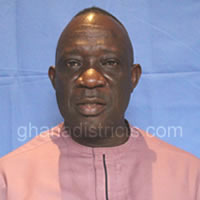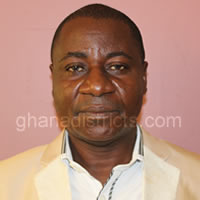Good Governance
Development through good governance in the Kadjebi District is vigorously pursued through partnership between the Kadjebi District Assembly and other development partners such as Non-Governmental Organizations and Non Decentralized Departments.
The District Assembly
The Kadjebi District Assembly is responsible for the overall development of the District and is the highest political and administrative authority according to PNDC law 207 and the Act 936. The District Assembly is composed of the Executive Committee Chaired by the District Chief Executive.
This Committee serves as a linkage between the District Chief Executive and the five sub-committees. Below the District Chief Executive, administratively, is the District Co-coordinating Director (DCD) who performs administrative functions. Under him are the Decentralized Departments (Health, Agriculture Education, Town and Country (Physical) Planning, National Disaster Management, Social Welfare and Community Development and Works), Administration, Finance, and District Planning & Co-coordinating Units. The District Assembly is presided over by a Presiding member who is elected from the members of the Assembly by at least a two-thirds majority.
The Kadjebi District Assembly is charged with the task of programme formulation, budget preparation and promotion of development activities within the Kadjebi District. It has 30 elected members from 30 electoral areas and 16 government appointees.
Sub Committees
The sub-committees are saddled with the responsibility of deliberating on specific issues and submitting their recommendation to the Executive Committee, which in turn presents them to the District Assembly for ratification. The Chairmen of the five (5) sub committees of the District Assembly are members of the Executive Committee. These sub committees are: -
i. Finance and Administration, ii. Development Planning, iii. Social Services, iv. Justice and Security, v. Works Sub-Committee
The following also exist to assist the development process;
i. District Water and Sanitation Management Committee
ii. District Environmental Committee
iii. District Disaster Management Committee
iv. District Education Oversight Committee
v. Entity Tender Committee
District Planning Co-ordinating Unit
There is a District Planning Co-ordinating Unit established to provide a secretariat and advisory services to the executive committee. It performs planning, programming and budgeting functions. This all-important technical wing of the District Assembly now has one Development Planner supported by a Budget Officer.
The District Administration consists of the following departments;
i. General Administration
ii. Development Planning Coordinating Unit
iii. Works Department
iv. Finance Department
Development Institutions
Decentralized Departments, which are presently in the District, include the following;
1. Central administration 2. Physical planning 3. Community Development and Social Welfare 4. Environmental health and sanitation unit 5. Department of Agriculture 6. District works Department 7. Birth and Death Registry 8. National disaster management organization
The following are non-decentralized department in the district;
1. Ghana National Fire Service 2.Information service department 3. Department of Co-operatives 4.Health 5. Non-formal 6. Statistical service 7.
The following departments oversee the District from Jasikan District;
1. Forestry Department 2. Land Valuation Department 3. Audit Service 4. Town and Country Planning Department
SECURITY SERVICES
Kadjebi District enjoys peace and security this as a result of the presence of the Ghana Police Service (GPS) Ghana, Immigration Services (GIS), Customs Division of Ghana Revenue Authority (GRA) District Magistrate Court (DMC) and the Ghana National Fire Service (GNFS).
Police
The Police are in control in the area of law and order which results in peace in any given society which is a recipe for development.. The maintenance of law and order and the combat of crime is as a result of the strategic sitting of police stations at Ahamansu, Dodi- Papase ,Dodo –Amanfrom ,Pampawie and Kadjebi the district capita.
Challenges
Lack of office accommodation
Inadequate staff accommodation
Lack of means of transport
Inadequate radio and communication equipment
Ghana Fire Service
The Ghana Fire Service is firmly present on the ground stationed at district capital Kadjebi. They routinely perform fire management programs in the form of education and fire safety techniques. There are twenty six (26) fire personnel all stationed at Kadjebi. The station is equipped with a three thousand (3000) gallons capacity fire engine which is used in fire fighting operations district wide.
Challenges
Lack of fire hydrants
Lack of logistics to train and equip fire volunteers
Lack of staff accommodation
No Backup vehicle
Sub District Structure
These represent the base structure of the local government system. Sub District structures in the Kadjebi District are;
i. Town/Area Council
ii. Unit Committees
Town and Area Councils
The District has been zoned into 6 Town and Area Councils. These are;
a. Kadjebi Town Council, b.Asato Area Council, c. Ahamansu Area Council, d. Dodo Area Council , e.Dodi Area Council , f. Amanta
Area Council.
Unit Committee
There are about 78 unit committees in the District. They are however not well resourced and motivate to perform as expected.
Non-Governmental Organizations (NGOs) and Community-Based Organizations (CBOs)
There are a number of Non-Governmental Organizations and Community-Based Organizations within the District. These organizations promote the socio-economic development of the rural poor in the district. The available NGOs and CBOs are presented in table 14 below;
Foreign Development Partners
The development efforts of the Kadjebi District Assembly is supported by a number of foreign donor organizations such as
UNICEF ¬– WASH Program
United Nations Children Emergency Fund (UNICEF) which is into Water Sanitation and Hygiene (WASH) activities aimed at providing skills training and capacity building for health and sanitation staff, latrine artisans and natural community leaders. The Community Led Total Sanitation (CLTS) which is aimed at eliminating open defecation in rural and urban communities.
The District Development Facility (DDF)
These are European Nations funding made available to local government institutions for the building of capacities of staff and the provision of investment grants for physical projects. Strings are however attached to the use and a grade must be made in other to have access
Date Created : 11/21/2017 5:21:07 AM





 facebook
facebook twitter
twitter Youtube
Youtube TOLL FREE 0800 430 430
TOLL FREE 0800 430 430 +233 593 831 280
+233 593 831 280 GPS: GE-231-4383
GPS: GE-231-4383 info@ghanadistricts.com
info@ghanadistricts.com Box GP1044, Accra, Ghana
Box GP1044, Accra, Ghana